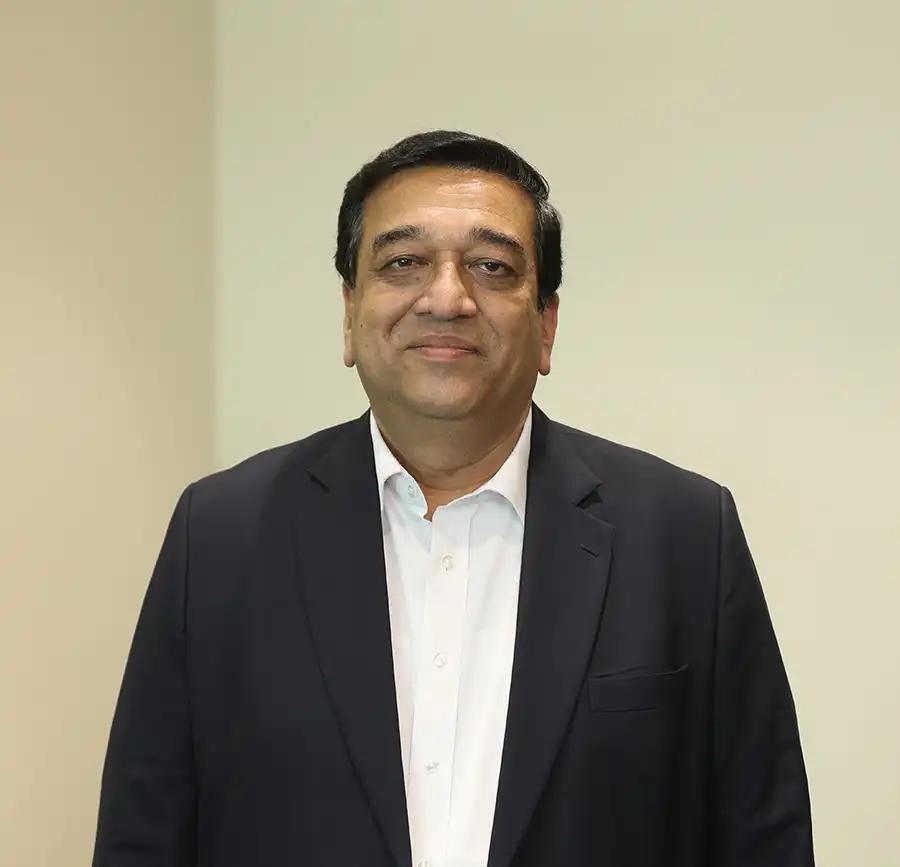View Interview
 Interview
Interview

Atul Mathur
Executive Vice President HR, Aditya Birla Capital
With extensive exposure to Human Resource practices in leadership roles, he has worked across diverse industries including Telecommunications, BPO, Insurance, Search Consultancy, and Media. His experience includes setting up and leading large national teams and conceptualizing and implementing large-scale HR projects.
As a thought leader and keen practitioner of digital innovations, Atul brings forward-thinking strategies to the table. He is certified in MBTI, FIRO-B, and Assessment & Development Centres.
Q:How do you define Excellence, and what does it mean to you personally?
A:Excellence, to me, is the commitment to continuous improvement and the pursuit of the highest standards in every endeavour. It is not just about achieving a specific goal or hitting a target, but about the relentless drive to enhance skills, processes, and outcomes consistently. On a personal level, excellence means being proactive in seeking opportunities for growth and learning. It involves setting ambitious yet realistic goals and putting in the necessary effort to surpass them. It is about maintaining a balance between perfectionism and pragmatism, understanding that excellence is a journey rather than a destination.
Q:How do awards and recognition impact HR team morale?
A:Awards and recognition have a significant impact on HR team morale. They serve as powerful motivators, fostering a positive work environment and driving higher performance. They help increasing motivation, reinforce positive behaviour, enhancing engagement and promoting job satisfaction. Overall, a well-structured awards and recognition program not only elevates individual morale but also contributes to a more motivated, cohesive, and high-performing HR team.
Q:How do you ensure a positive and inclusive workplace culture?
A:To ensure a positive and inclusive workplace culture, our focus is on:
- Continuous Education: Implementing regular training on diversity, equity, and inclusion.
- Inclusive Policies: Developing policies that support diversity and prevent discrimination.
- Leadership Example: Leading by example, demonstrating inclusivity in all actions.
These steps help create a welcoming, supportive environment where every employee feels valued and respected.
- Continuous Education: Implementing regular training on diversity, equity, and inclusion.
- Inclusive Policies: Developing policies that support diversity and prevent discrimination.
- Leadership Example: Leading by example, demonstrating inclusivity in all actions.
These steps help create a welcoming, supportive environment where every employee feels valued and respected.
Q:What is the main goal for the HR function in your organization over the next few years?
A:The main goal for the HR function in our organization over the next few years is to build a highly skilled, engaged, agile and diverse workforce that drives innovation and business success. By focusing on these areas, we aim to create a dynamic and resilient workforce that can adapt to future challenges and opportunities.
Q:What kinds of training and workshops do you regularly organize for your HR team?
A:We prioritize organizing a variety of training and workshops for our HR team to ensure they are equipped with the skills and knowledge necessary to support our organization's goals. Some key areas of focus include:
Leadership Development: Workshops on leadership skills, emotional intelligence, and strategic thinking to prepare HR professionals for leadership roles and enhance their ability to guide others.
Talent Management: Training on talent acquisition, performance management, succession planning, and employee retention strategies to ensure effective talent management practices.
Diversity, Equity, and Inclusion (DEI): Regular workshops on DEI to foster an inclusive workplace culture, address unconscious biases, and promote diversity at all levels of the organization.
HR Technology and Analytics: Workshops on using HR technology and data analytics to improve decision-making and streamline HR processes.
Open nomination self-help programs: Training on various topics like conflict resolution, negotiation skills, and effective communication to name a few.
Leadership Development: Workshops on leadership skills, emotional intelligence, and strategic thinking to prepare HR professionals for leadership roles and enhance their ability to guide others.
Talent Management: Training on talent acquisition, performance management, succession planning, and employee retention strategies to ensure effective talent management practices.
Diversity, Equity, and Inclusion (DEI): Regular workshops on DEI to foster an inclusive workplace culture, address unconscious biases, and promote diversity at all levels of the organization.
HR Technology and Analytics: Workshops on using HR technology and data analytics to improve decision-making and streamline HR processes.
Open nomination self-help programs: Training on various topics like conflict resolution, negotiation skills, and effective communication to name a few.
